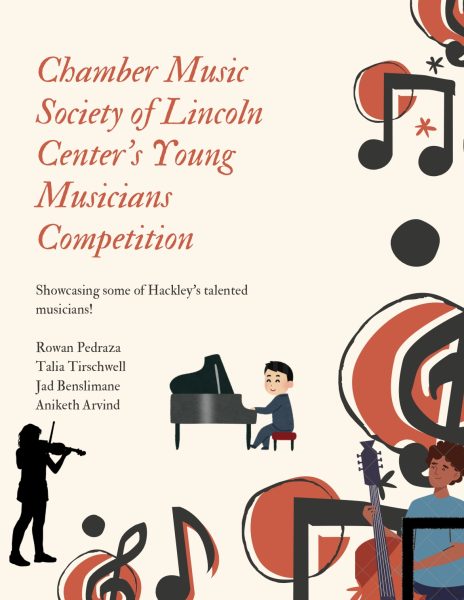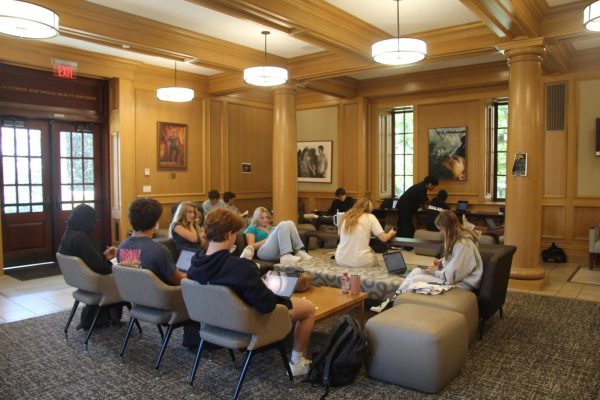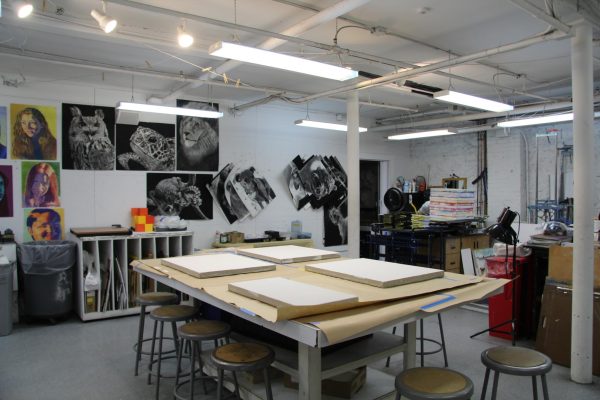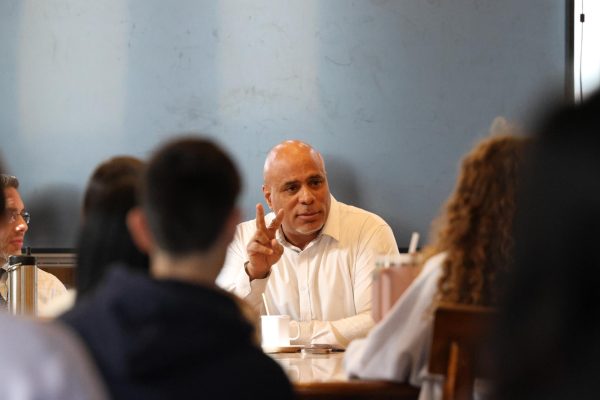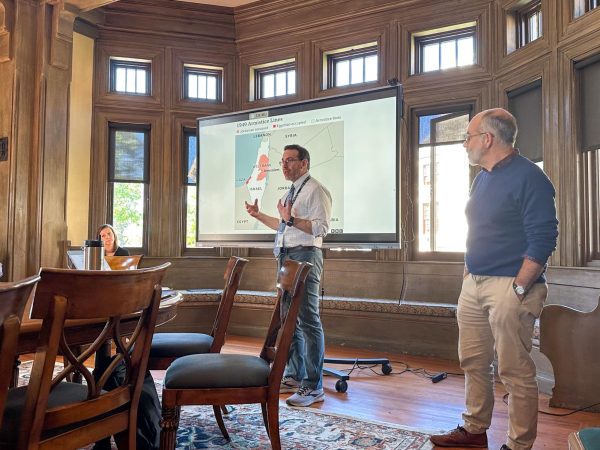Global climate change experts enlighten Upper School students
Wendt Scholar Drew Jones and Szabo Lecturer Cynthia Scharf conduct a “Climate Interactive” simulation
Credit: Christian Riegler
Wendt Lecturer Drew Jones leads Hackley students in a simulation activity of United Nations discussions on climate change. Mr. Jones used his simulator to show how different climate change agreements would affect the global climate.
February 10, 2017
The morning of January 19 began with a wave of fear and apprehension sweeping through the minds of the student body. By the end of third period, Upper School students left the Zetkov Center with a steadfast and resolute desire to create change. Community Time, usually used as a free period for students to work on homework or attend club meetings, became an occasion for a thought-provoking and rather alarming reality to be revealed.
Drew Jones and Cynthia Scharf, two leading experts on climate change, were Hackley’s 2017 Wendt and Szabo Lecturers. They each presented powerful information on the perilous state of our planet. Yet they did so not through a mere lecture or video, but rather through a simulation in which certain Upper School students represented a collective group of nations, with the goal of preventing our planet’s average temperature from rising 2 degrees Celsius.
Some students expressed hope regarding the fate of our planet, while others remained fearful and alarmed about its future. “The simulation was great in that it depicted the reality we face. But saying we’re going to do it [fight climate change] is very different from actually creating change. Something that wasn’t really discussed in the simulation was the power of money. As sad as it is, I don’t think that people are going to be willing to disregard their own financial interests to create reform,” said junior Chad Lasseter.
The students representing the wealthiest nations in the world were granted chairs to sit on, while those representing poor and less industrialized nations sat on the floor during the simulation. Mr. Jones used a computer simulation by which the students of each group of nations were to collectively give their emissions peak, and the rate at which they sought to cut their emissions down by every year after. To demonstrate the potential ramifications of a global temperature rise exceeding 2 degrees Celsius, a blue tarp, signifying the world’s oceans, was placed over students of Third World countries, who are bound to feel the strongest effects of climate change.
Many students felt strong and contradictory emotions following the simulation. “It made me feel empowered and powerless simultaneously, further inciting my will to create change, but also deeply saddening me to the existential threat that this widely ignored issue poses,” said sophomore Josh Gluckman.
Ms. Scharf (Upper School history teacher Vladimir Klimenko’s wife) began her speech with a potent and clear message: climate change is indeed occurring. Not a shadow of doubt remains in the minds of members of the scientific community regarding the validity or enormity of the problem our planet faces. To put the degree of agreement that scientists hold concerning this issue into perspective, Mr. Jones remarked: “There are still scientists that say smoking does not cause cancer, and there are still a few scientists that say humans do not cause global warming.”
Both Ms. Scharf and Mr. Jones discussed the reluctance that some countries around the world, such as Russia, have exhibited with respect to investing in renewable energy. “There is an infrastructure that has been built up in every country to get energy to its citizens and to its industries, and it’s been based on fossil fuels. Transforming the infrastructure, all the thousands of miles of pipes, and the factories, is costly and is going to take time,” said Ms. Scharf.
While this harrowing change will indeed be difficult and will take years to accomplish, a desire to resolve this issue is still ever-present. “Hope is a choice, not an assessment. Hope is the commitment everyday to be part of creating the world we want to see. It should not be a calculation of the possibility of success or failure,” said Mr. Jones.

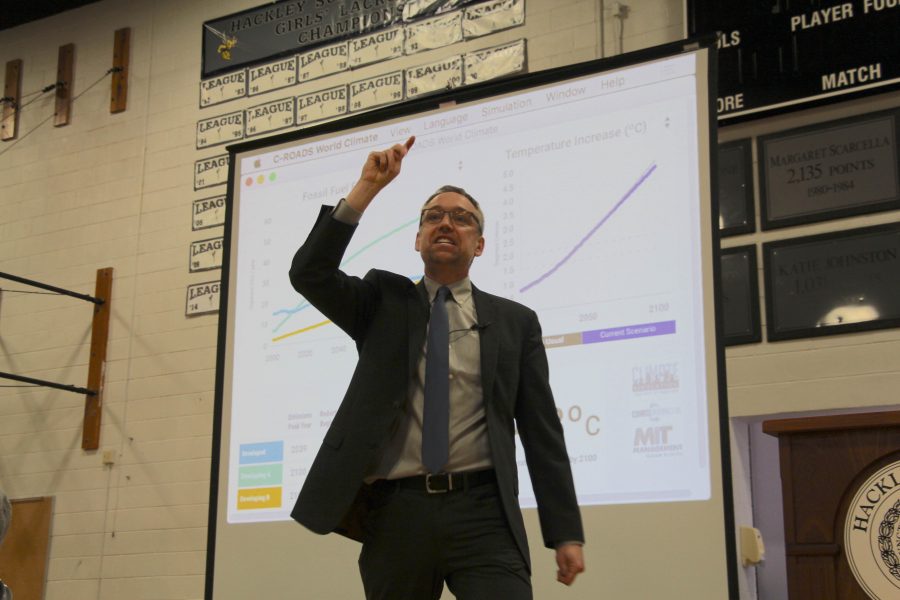

![Although the affect of COVID-19 has been on a decline with less cases and deaths allowing most of us to remain mask free, people on the Hilltop are still choosing to mask up. Personal health concerns as well as helping an elderly neighbor are reasons as to why middle school science teacher Emma Olsen still wears a mask years after the COVID-19 pandemic began. Since I am helping take care of him, you know I go over to work with his dogs, that kind of thing; I dont want to bring [the virus] home to him, Ms. Olsen said.](https://hsdial.org/wp-content/uploads/2024/03/IMG_1713-450x600.jpg)
